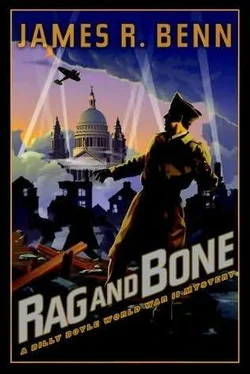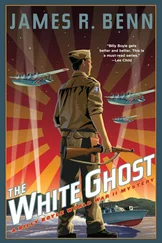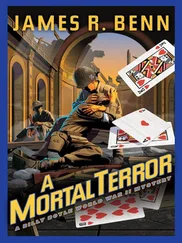James Benn - Rag and Bone
Здесь есть возможность читать онлайн «James Benn - Rag and Bone» весь текст электронной книги совершенно бесплатно (целиком полную версию без сокращений). В некоторых случаях можно слушать аудио, скачать через торрент в формате fb2 и присутствует краткое содержание. Жанр: Шпионский детектив, на английском языке. Описание произведения, (предисловие) а так же отзывы посетителей доступны на портале библиотеки ЛибКат.
- Название:Rag and Bone
- Автор:
- Жанр:
- Год:неизвестен
- ISBN:нет данных
- Рейтинг книги:4 / 5. Голосов: 1
-
Избранное:Добавить в избранное
- Отзывы:
-
Ваша оценка:
- 80
- 1
- 2
- 3
- 4
- 5
Rag and Bone: краткое содержание, описание и аннотация
Предлагаем к чтению аннотацию, описание, краткое содержание или предисловие (зависит от того, что написал сам автор книги «Rag and Bone»). Если вы не нашли необходимую информацию о книге — напишите в комментариях, мы постараемся отыскать её.
Rag and Bone — читать онлайн бесплатно полную книгу (весь текст) целиком
Ниже представлен текст книги, разбитый по страницам. Система сохранения места последней прочитанной страницы, позволяет с удобством читать онлайн бесплатно книгу «Rag and Bone», без необходимости каждый раз заново искать на чём Вы остановились. Поставьте закладку, и сможете в любой момент перейти на страницу, на которой закончили чтение.
Интервал:
Закладка:
“War wound?” I asked as the coffee was poured.
“I wish it had been,” Radecki said with a wry smile. “It was a tram accident, in Bucharest. The bone was not set properly, but I had no time to go back to the hospital. I had a freighter to catch in Constanta, on the Black Sea. Otherwise I would have been trapped in Romania.”
“It looks painful,” I said.
“It is. I fell again, hurrying on the stairs recently, and aggravated it. My doctor has prescribed laudanum, which I take only when I cannot sleep. They say they can reset the bone, but it would be a long convalescence. After the war, perhaps.”
“Captain Radecki knows I rely on him,” Horak said. “With so few experienced officers, he is worth more with a bad leg than ten junior officers.” He gave a nod to Radecki to begin.
“I am sure you know the basics, Billy,” Radecki said. “But, to summarize, in September 1939 the Germans attacked Poland, the beginning of this war. England declared war on Germany, but could do nothing to aid us. The Russians, who had a nonaggression pact with Nazi Germany, then invaded our nation from the east. The Russians and Germans divided Poland between them.”
“I know,” I said. “It was a raw deal.” I drank the hot coffee, remembering the newspaper headlines at the time. There had been rumors of peace, with the most optimistic, or naive, thinking that with the two big powers in eastern Europe in cahoots, it might end quickly. I guess if a few small countries had to take it on the chin, that didn’t bother some people much.
“Indeed. The Russians took a quarter of a million Polish troops prisoner. They released many of the lower ranks, and turned thousands over to the Germans. Ultimately, they were left with forty thousand. Officers from all services, plus many professionals who had been arrested. Physicians, clergymen, teachers, judges, and so on.”
“Wait a minute,” I said. “If the Russians and Germans were taking everyone prisoner, how did so many Poles make it out? How did you two end up here, if you don’t mind my asking?”
“The border with Romania was open,” Horak said. “Many of us crossed the border after the fighting, before either side had firm control. My unit was in the Carpathian Mountains, south of Krakow. After the Russians and German forces met, some of us made it on foot into Romania. From there, we went to France, where Polish forces were reorganizing.”
“I also went through Romania, paying bribes to get a ship on the Black Sea to take me to Palestine,” Radecki said. “The Germans were putting pressure on Romania, which was then neutral, to intern all Polish nationals. The escape route did not last long.”
“Meanwhile,” Kaz said, “the Russians were trying to convince their Polish prisoners of the virtues of Communism. We know they spent a lot of time in the camps interrogating everyone, trying to find converts.”
“There were very, very few,” Radecki said. “Perhaps that sealed their fate. For months, letters had been going to families back in Poland. In April 1940, the letters stopped. Mail that had been sent to prisoners was returned. Thousands of parcels and envelopes came back to Poland ‘Addressee unknown.’”
“Apparently the decision had been made to eliminate any future threat to Soviet domination of Poland,” Horak said. “Stalin did not foresee the Nazi invasion of Russia, and thought the Polish officers were an unnecessary surplus. So they were eliminated.”
“But in June 1941, the Nazis did invade Russia,” Radecki said. “Suddenly, the remaining Polish prisoners, mostly enlisted men, were needed to fight Germans. Stalin kept the few tame Poles to form a Polish unit within the Russian Army, and let all the others go. They came from 138 camps. A center at Buzul’uk was set up to take in the released prisoners and send them on to the British in the Mediterranean.”
“General Wladyslaw Anders was in charge, Billy. You may have met him in Italy.”
“Yes, I did. He’s commander of the Second Polish Corps.”
“Right,” said Radecki. “One of the first things Anders discovered was that he had practically no senior officers. He was one of sixteen generals captured by the Russians, but only one other general was accounted for. According to our estimates, we were missing, from one camp alone, one hundred colonels, three hundred majors, one thousand captains, twenty-five hundred lieutenants, and hundreds of cadets, doctors, teachers, engineers, and so on.”
“This was the camp at Kozielsk,” Kaz said. “These were the victims who were shot in the back of the head and buried in mass graves. There were thousands of others, killed in other locations.”
“But the Germans found the graves from Kozielsk?”
“Yes. In the Katyn Forest, outside of Smolensk. In April of last year, the locals told them what had happened. They unearthed the bodies, and revealed the crime to the world.”
“But the Nazis,” Radecki said, “being murderers themselves, were not believed by many. Not the press, certainly. But we knew that, for once, they told the truth. We asked the Red Cross to investigate, and for this crime, Stalin cut off relations with the Polish Government in Exile.”
“And formed his own puppet regime,” put in Horak.
“So where does all this leave us?” I asked.
“For now, we will go on fighting wherever we can. But we must prove Russian guilt beyond all doubt, so that when Germany is defeated, we can go home to a free country, not one dominated by the Soviet Union,” Horak said.
Radecki opened the file and tossed a stack of photographs on the table between us. An open pit with layers of bodies, the army greatcoats and boots marking each man an officer. Close-ups. A neat hole in the back of each head. Hands tied behind the back with rough twine.
“Is this how they were all killed? Hands tied, and a bullet in the back of the head, I mean.”
“For the most part, yes. Reports from the Red Cross indicated that some had their hands tied with barbed wire. There were some with stab wounds from bayonets, but those were in the minority, likely those who resisted at the last minute,” Radecki said, lighting another cigarette. “It appears they were driven into the woods, then forced to walk to the pits. Each man saw, and heard, what was done to those who went before him.”
It was a horrible vision, but what I was seeing was not a forest outside of Smolensk. It was a London neighborhood near the Liverpool Street Tube Station, where a dead Russian was found, his hands bound behind his back with string, and a single bullet hole to the back of the head. I looked at Kaz and wondered.
“It is a terrible sight, isn’t it?” Radecki asked.
“Can you be certain this wasn’t done by the Germans and then blamed on the Russians, as a propaganda ploy?”
“Yes, we are certain, and so is the International Red Cross. The bodies were all heavily clothed, which points to the date of the killings as being April of 1940, when the temperature was still quite cold. The Russian story is that the Germans captured the Poles in August 1941, when they were performing roadwork as part of a labor detail. The clothing does not make sense for hot, dusty summer work.”
“And there is the matter of the letters,” Horak said. “Both the letters that were returned, and the fact that many letters and other documents were recovered with the bodies. None had a date after April 1940.”
“This is a Russian crime, Billy. A mass murder. And no one wants to hear about it,” Kaz said. “The British government worries that a split over this might move the Russians to make a separate peace with the Germans. They are quite willing to let us die to defend England, but they will not seek justice for our murdered dead.”
Читать дальшеИнтервал:
Закладка:
Похожие книги на «Rag and Bone»
Представляем Вашему вниманию похожие книги на «Rag and Bone» списком для выбора. Мы отобрали схожую по названию и смыслу литературу в надежде предоставить читателям больше вариантов отыскать новые, интересные, ещё непрочитанные произведения.
Обсуждение, отзывы о книге «Rag and Bone» и просто собственные мнения читателей. Оставьте ваши комментарии, напишите, что Вы думаете о произведении, его смысле или главных героях. Укажите что конкретно понравилось, а что нет, и почему Вы так считаете.












